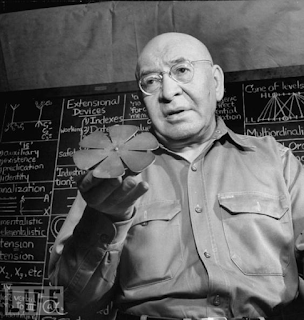What could we learn from the Dot-com bust? ...the Crypto-Bubble could erase 95% of the Crypto!
An interesting study would be to check out the Superbowl ads from 1996 until 2002. A great deal of failed ideas and concepts that had only years or months earlier collected billions will most likely be on display.
For those who were in the market euphoria of the dot.com 90's, we remember the hysteria that the first iteration of the internet era, with Wall Street's and the bankers help, wrought. IPOs for anything with a .com skyrocketed weekly. Cash burn rates on most of the"tech" companies, even Amazon, seemed unsustainable... and sure enough, they were. By the end of 2000, it was clear the business models weren't nearly as refined as promised and it wasn't just a marketing problem. Plain old business principles were lacking, and low and behold, a several year crash resulted. The Nasdaq went from around 800 in 1995 to 5000 in early 2000 and then deflated back to near 1100 by late 2002. Much of the money "invested" disappeared into advertising.
Now check out this list from late 2017 of the top 100 cryptos and compare it to today's top 100 and one can probably see some clues as to how things may change.
I'm not sure if we are through the initial euphoria phase with crypto... with the current financial system about to burn itself down... crypto may initially appear to be a lifeboat for the money this ridiculous credit bubble has spawned. A bubble so big that few can even imagine the extent of... that has inflated the value of nearly everything to sky high numbers while the underlying economy is being buried primarily by absent minded bureaucrats and tyrannical politicians. In addition, take note there is a great deal of poor business practices going on as well.
It's clear a big crash is coming, big changes will occur, those with cash will look for anything that appears to have real or future value... and that emotional environment will more than likely be leveraged to encourage another round of malinvestment.
Timing is going to be paramount. Excellent trustworthy information is going to be extremely valuable.
So what can we gain from all this?
Over the past month or so, Acapulco tends to have an influx of crypto-enthusiasts and experts this time of year. I've listened carefully to the conversations and here's three things of value I've gleaned from the conversations I heard.
One, the DAO. Decentralized Autonomous Organizations. In a world of government created entities that have little or no connection or liability for the harmful damage they do to the world. The DAO is an answer. Combine that with PMAs or Private Membership Associations and many of the incompetent and foolish rules that governments have used to govern and steer business, the ungodly administrative costs associated with compliance, and the obtrusive organizational hierarchy, can be avoided. Small business can be very light of foot... can formulate around specific projects, exist for the duration, have the outcome realized, profits distributed, and then dissolved before the government busybodies even know it existed. Unlike much of the current crypto world that is stuck in a scarcity mindset... DAOs can demonstrate the advantages of an abundance mindset.
Two, NFTs. Non-Fungible Tokens. There's a lot to be cautious about with NFTs. But the idea behind them is solid. Much of what government has leveraged to it's advantage is in the licensing and registering arena. What most newly affluent don't realize is the system uses their willingness to report their wealth to the government and institutions like insurance companies. Then that information is used against them. A free market alternative that is much more efficient and maintains the privacy of that wealth from the criminal elements is highly desirable. NFTs can function as that.
Three, systems that correctly assign real value to the value creators will demonstrate the efficiency of teamwork and self-governing organization. My own experience in the construction industry and in the military clued me into something very important in getting things done. Small unit leadership and teamwork. This isn't about hierarchy, this is about getting things done. When people come together in small teams, and things like: roles and responsibilities are properly assigned, commitments and accountability are apparent, conflicts and disagreements are quickly resolved and learned from, and most importantly... trust is developed, things get done very efficiently. Add in the incentive of getting paid for implementing these improvements...ie value distributed to the actual value creators and innovators ...and magic happens.
Productivity and Quality go through the roof and Costs go down. The construction industry and the military may not be great at distributing value but they are fairly efficient at getting work done and accomplishing missions... and it's because from top to bottom small teams and crews do the work. When that is combined with money and other valuables ending up in the possession of the value creators, the sky is the limit.
DAOs and NFTs combined with this knowledge make that possible. This is a template that can be used to compare any enterprise's operation... if work isn't being distributed to teams, if teams are bottle-necked by bureaucracy or gatekeepers, if feedback isn't flowing back and forth, if value isn't being distributed equitably... that system isn't realizing it's potential.
To conclude, this may be a brief overview but I would assert these are important criteria to evaluate the potential of concepts in this industry. There is much to lose and even more to gain. Those who have a keen eye and the ability to deliver excellence in these key areas are going to have a leg up on everyone else.
Where might someone go to learn more about how these could be employed and utilized? Check out the description below!







Comments
Post a Comment